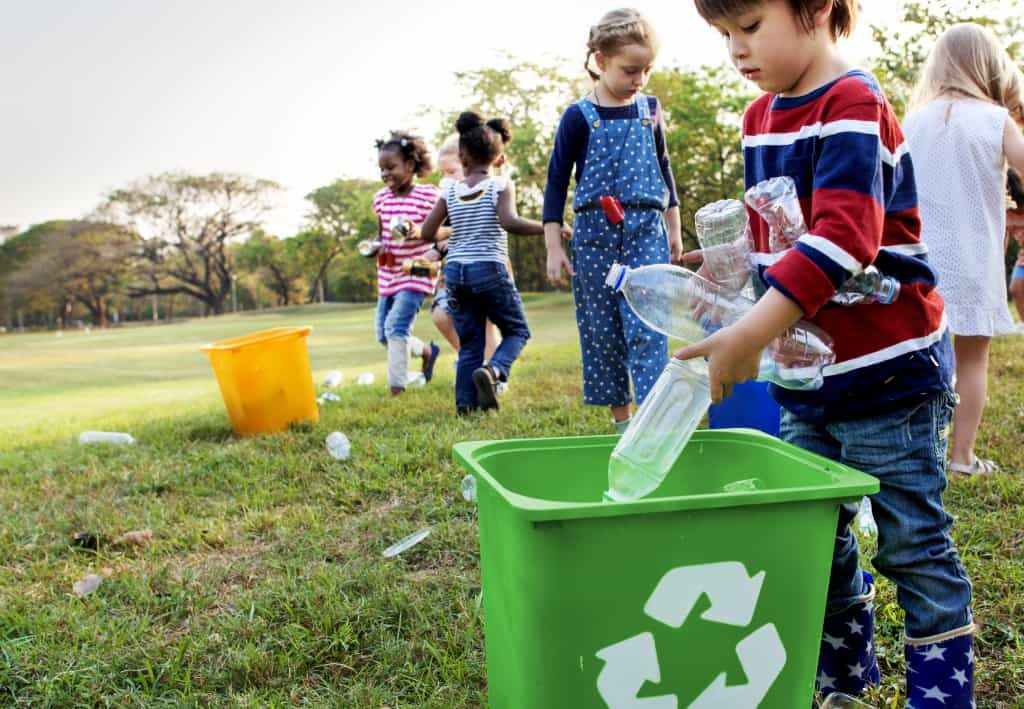We have a responsibility to ensure that future generations will not be made worse off by inheriting fewer natural resources than what is needed to maintain a comfortable standard of living. This is the essence of what sustainability means. Children don’t naturally understand this principle – so we need to explain it to them. However, this isn’t an easy concept for them to grasp if we only use words to make the explanation.
Activities can help to make this abstract term — sustainability — seem more concrete, understandable and accessible to them. The following are 3 stimulating outdoor activities that can help kids to truly understand what sustainability is all about:
1. Plant Trees, Herbs or Flowers
If you have a backyard, a balcony or even a sunny window, you can empower your kids to learn about how trees and plants grow.
Planting trees requires space. Not everyone has this luxury; but, if you do, planting trees is one of the most environmentally beneficial things you can teach your children to do.
Why?
Multiple reasons:
- Trees’ deep roots help to prevent soil erosion from wind and water.
- Trees help to sequester carbon.
- If you plant trees that bear edible fruits or nuts, your family will have a hyper-local food source that doesn’t need to be packaged or transported using fossil fuels.
Of course, trees aren’t the only beneficial things you can plant. Whether or not you have the space for trees, any other types of plants can give the same benefits on a smaller scale. Whether you plant an entire vegetable garden or a few herbs in a pot, even small actions can help to reduce your family’s footprint and teach your kids to think more sustainably.
2. Pick Up Rubbish and Recycle It
Rubbish gets everywhere. Many times, it isn’t intentional; people sometimes accidentally drop trash and it blows away from them. On windy days, lids on bins can fly open and rubbish can blow out of them.
Some trash that’s left in the environment – in particular, much of the ordinary paper rubbish — will safely biodegrade on its own, given enough time. It’s a bummer that it’s there cluttering up your neighborhood, but that sort of rubbish isn’t an environmental emergency.
However, some rubbish – in particular, most of the plastic sort — won’t biodegrade. This is problematic, because plastic that finds its way into oceans and waterways can harm fish, birds and other wildlife.
Picking up trash is an activity that you and your kids can do together as a means of helping to protect local animals, birds and sea creatures. Focusing on picking up recyclable rubbish can be particularly beneficial.
Much of the time, the rubbish you’ll gather can be easily recycled using the curbside bin system set up by your local authorities. However, you might occasionally encounter things that can’t easily be disposed of that way; for example, our group once found an abandoned mattress left by the side of a road. The following are a few helpful resources in case you encounter rubbish that isn’t so easily disposed of:
- Mattress recycling in Brisbane
- E-waste recycling in Australia
- Printer cartridge recycling in Australia
3. Compost
Composting is a useful and environmentally beneficial activity. Composting involves taking organic rubbish such as carrot peels, apple cores, eggshells, coffee grounds, grass clippings and similar scraps and encouraging it all to break down and decompose. In time, these waste materials will transform into a valuable soil-like substance that you can use in your garden as a soil amendment or mulch.
There are multiple priceless lessons for your children to learn from composting. First, if you have planted trees, herbs, flowers or garden vegetables, the compost can be used to help them grow.
Second, it will give your kids the opportunity to learn for themselves what biodegradable means. You will then have the opportunity to explain to them why it is worthwhile to choose biodegradable packaging materials, textiles and other items instead of items such as acrylics and other plastics that do not readily biodegrade — and they can see the difference in impact for themselves.
These 3 outdoor activities can be fun, stimulating and educational for your kids – and they can also help you to introduce children to the foundations of environmental responsibility. Educating them on the importance of sustainability is a good way to ensure that the natural resources they need for survival will remain available for them and future generations to enjoy.

